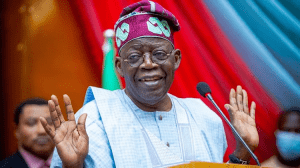With its latest ban on Twitter, Nigeria became the 66th country in the world to restrict social media access in the last six years, a study has found.
Nigeria’s latest ban on Twitter makes its the 66th country in the world to restrict social media access in the last six years, a study has found.
On Friday, June 4, the Nigerian government suspended Twitter’s operation in Nigeria indefinitely after the microblogging platform deleted a tweet by President Buhari which it deemed as inciting violence.
The study conducted by the privacy protection company, Surfshark, also revealed that at least 30 out of 54 countries in Africa have blocked or heavily restricted social media access since 2015.
In Africa, most internet censorship and social media restriction cases have to do with riots, protests, elections, and other events of a political nature. About 16 of the 30 cases recorded were election-related and seven were due to protests.
Social media restrictions have become a rising trend over the past six years, with a total of 66 countries worldwide recording cases after the Egyptian government enforced an internet blackout back in 2011.
Since then, internet censorship has become rampant worldwide, especially in Asian and African countries.
In 2021 alone, there have been at least eight political cases of internet disruption across the world including in Nigeria, Uganda, Russia, Myanmar, Senegal, Chad, the Republic of Congo, and Bangladesh.

These governments usually go after communication apps like WhatsApp, Skype, Facebook Messenger, Viber, and social media platforms such as Facebook, Twitter, and Instagram.
“Social media has established itself as a key political player of its own. However, as its influence grows, so does the governments’ desire to censor it by introducing new laws, restricting access, or blocking social media altogether,” said Gabrielle Racaityte-Racai, communications manager at Surfshark.
The data for the research was collected through open-source information from Freedom House, Netblocks, and reputable news reports from 2015 to the present day. Social media was conceptualized as social networking sites (i.e., Facebook, Twitter, Instagram, Youtube, etc.) and communication apps, including VoIP apps (i.e., Skype, WhatsApp, Telegram, Viber). Both local and national social media blockings were taken into account in the study.















